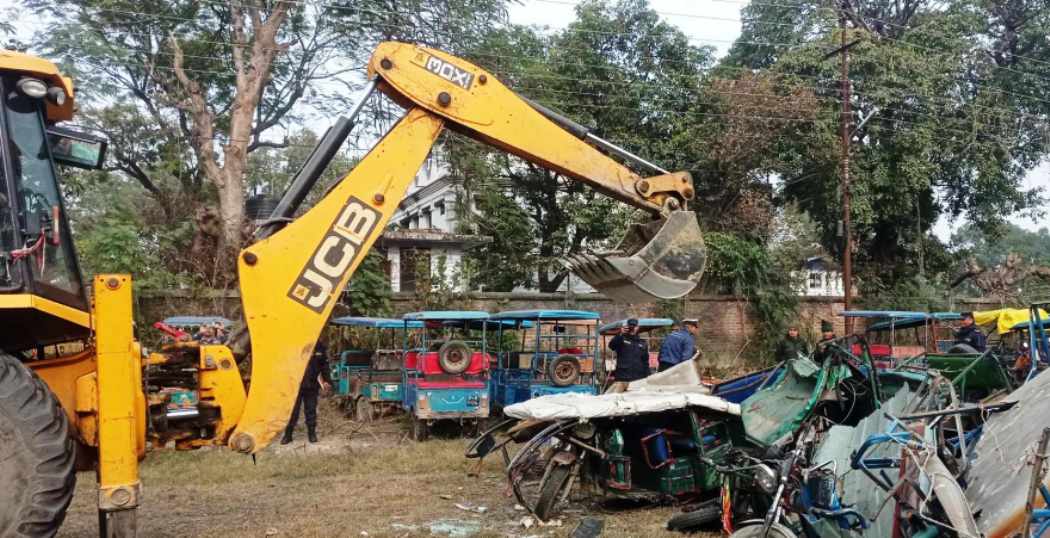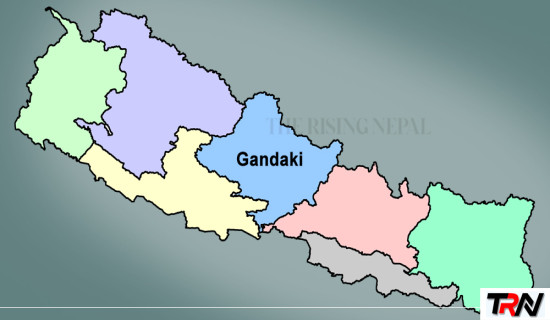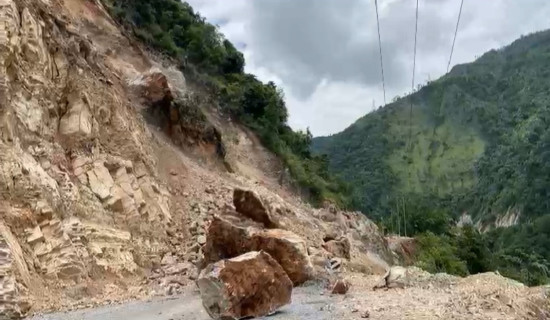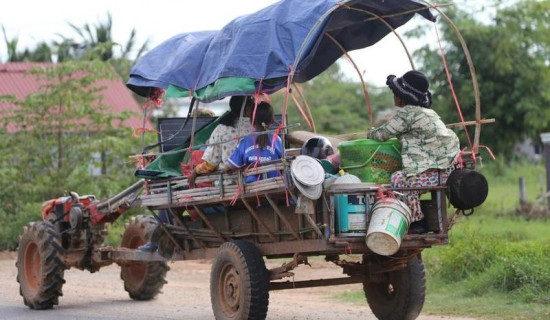- Saturday, 2 August 2025
Nepalgunj starts crushing undocumented e-rickshaw
By Siraj Khan,Nepalgunj, Jan. 11: In a bold move, the Nepalgunj Sub-metropolitan City has initiated a crackdown on electric rickshaws operating without proper documentation. Deploying dozers, the city administration has begun the destruction of the undocumented vehicles, marking a significant escalation in their ongoing campaign to manage electric rickshaws.
The initiative, which commenced on November 27, has already seen five e-rickshaws dismantled owing to the absence of necessary documents. Mayor Prashant Bista stated that the destruction followed thorough technical inspections, targeting vehicles with license plate numbers Bhe 1 S 5498, Bhe 1 S 8751, Bhe 1 S 48, Bhe 1 S 1531, and Gavis 02.
Mayor Bista justified the aggressive action, emphasizing the need to eradicate illegal electric rickshaws from the sub-metropolis. He highlighted that ample time had been provided for rickshaw owners to update their documentation, but the failure of some to comply resulted in the initiation of action.
However, this crackdown has not been without controversy. The sub-metropolitan city has faced strong criticism and protests over its decision to destroy the e-rickshaws using heavy machinery. Critics argue that despite the illegal status of the vehicles, alternative options, such as sending them to customs, should have been explored instead of outright destruction.
Mubarak Siddiqui of Nepalgunj 11 deplored the use of dozers, asserting that even if the rickshaws were operating illegally, destroying them in this manner is undemocratic and impacts the livelihoods of the poor. Social leader Shravan Kumar Yadav echoed similar sentiments, emphasizing the illegality of the destruction method when legal procedures and alternatives were available.
The sub-metropolitan city has taken control of 623 e-rickshaws thus far. Of those, 538 rickshaws that complied with the necessary documentation requirements have been released. However, 85 e-rickshaws remain under control, as confirmed by City Police Chief Surya Bogati.
In response to the destruction of their vehicles, electric rickshaw drivers in Nepalgunj have initiated protests. They are demanding compensation for their losses and have surrounded the Nepalgunj Sub-metropolis Office. The sit-in protest, accompanied by slogans, has brought municipal activities to a halt.
As the controversy unfolds, questions arise about the balance between enforcing the law and ensuring a fair and measured response, especially considering the potential socioeconomic impact on the drivers. The clash between regulatory actions and public sentiment underscores the need for a nuanced approach to address both legal compliance and the welfare of those affected by such measures. The coming days will likely witness a delicate balance between regulatory authorities and the concerned citizens, shaping the narrative around the management of electric rickshaws in Nepalgunj.

















